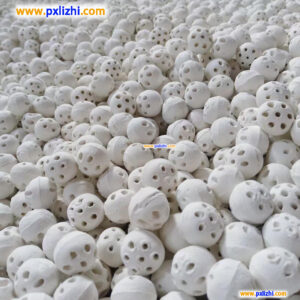“`markdown # Inert Ceramic Balls: The Ultimate Guide to Applications and Benefits “`

Inert Ceramic Balls: The Ultimate Guide to Applications and Benefits
Industrial processes demand reliable solutions for efficiency and durability. Among these, inert ceramic ball solutions stand out as versatile components with exceptional performance characteristics. These spherical ceramic materials serve critical roles across multiple industries by providing inert support, enhancing mass transfer, and protecting sensitive equipment.
Core Functions and Industrial Applications
Inert ceramic balls function primarily as catalyst bed supports in chemical reactors, tower packings in distillation columns, and grinding media in milling operations. Their chemical inertness ensures they won’t react with process materials, while their high mechanical strength withstands extreme temperatures and pressures. Common applications span petroleum refining, petrochemical processing, natural gas treatment, and environmental protection systems.
Thermal Stability and Corrosion Resistance
The exceptional thermal stability of alumina-based ceramic balls allows them to maintain structural integrity in temperatures exceeding 1600°C. Combined with superior corrosion resistance against acids and alkalis, this makes them ideal for harsh processing environments where metal components would rapidly degrade.
Key Benefits Driving Widespread Adoption
Operations implementing inert ceramic balls typically experience reduced maintenance costs, extended equipment lifespan, and improved process efficiency. The spherical shape creates optimal void spaces for fluid distribution while preventing channeling. Their high density provides excellent load-bearing capacity in high-pressure systems.
Cost-Efficiency and Environmental Advantages
By protecting expensive catalysts and equipment components, ceramic balls deliver significant long-term savings. Their durability translates to reduced replacement frequency, while their inert nature ensures they don’t introduce contaminants into processes, supporting cleaner production standards.
Frequently Asked Questions
What sizes are available for inert ceramic balls?
Standard diameters range from 3mm to 50mm, with custom sizes available for specialized applications.
How do I select the right ceramic balls for my application?
Consider operating temperature, chemical environment, pressure conditions, and required crush strength. Consulting with technical specialists is recommended.
Can ceramic balls be reused or regenerated?
Yes, their exceptional durability allows for multiple use cycles with proper cleaning between applications.
Optimize Your Processes Today
Ready to enhance your operational efficiency with premium ceramic solutions? Our technical team provides comprehensive support for selecting and implementing the ideal inert ceramic ball configuration for your specific requirements. Contact us for a free consultation and discover how these versatile components can transform your industrial processes.